-
“Cultures are much stronger weapons than guns” - An interview with the Korean Symphonic Folk Metal band Gostwind
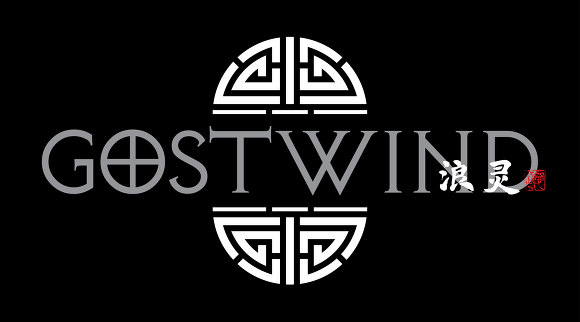
SEBASTIAN KLUTH: “Hello from Chicoutimi, Canada. How is life in Seoul in the beautiful Republic of Korea? Thank you a lot for accepting this great interview occasion. Could you please introduce yourselves to our readers? Who are you, what kind of music do you play and what’s the meaning behind your band name?”
RYOO KEUN-SANG: “Hi. My Name is Keun-Sang Ryoo. I’m the leader, composer and drummer in “Gostwind”. We basically play hard rock and we try to mix it with Korean folk music and our traditional culture. The band name “Gostwind” is derived from two words: “ghost” and ”wind”. “Ghost” stands for our spirit and soul for rock music and ‘wind’ is some new wave or real new wind that we wish to come over the world. A lot of people ask why we call ourselves ‘gost’ without ‘h’. We wanted our band name to be an easy name as well as our very own name. So the name ‘Gostwind’ has become our one and only name forever.”
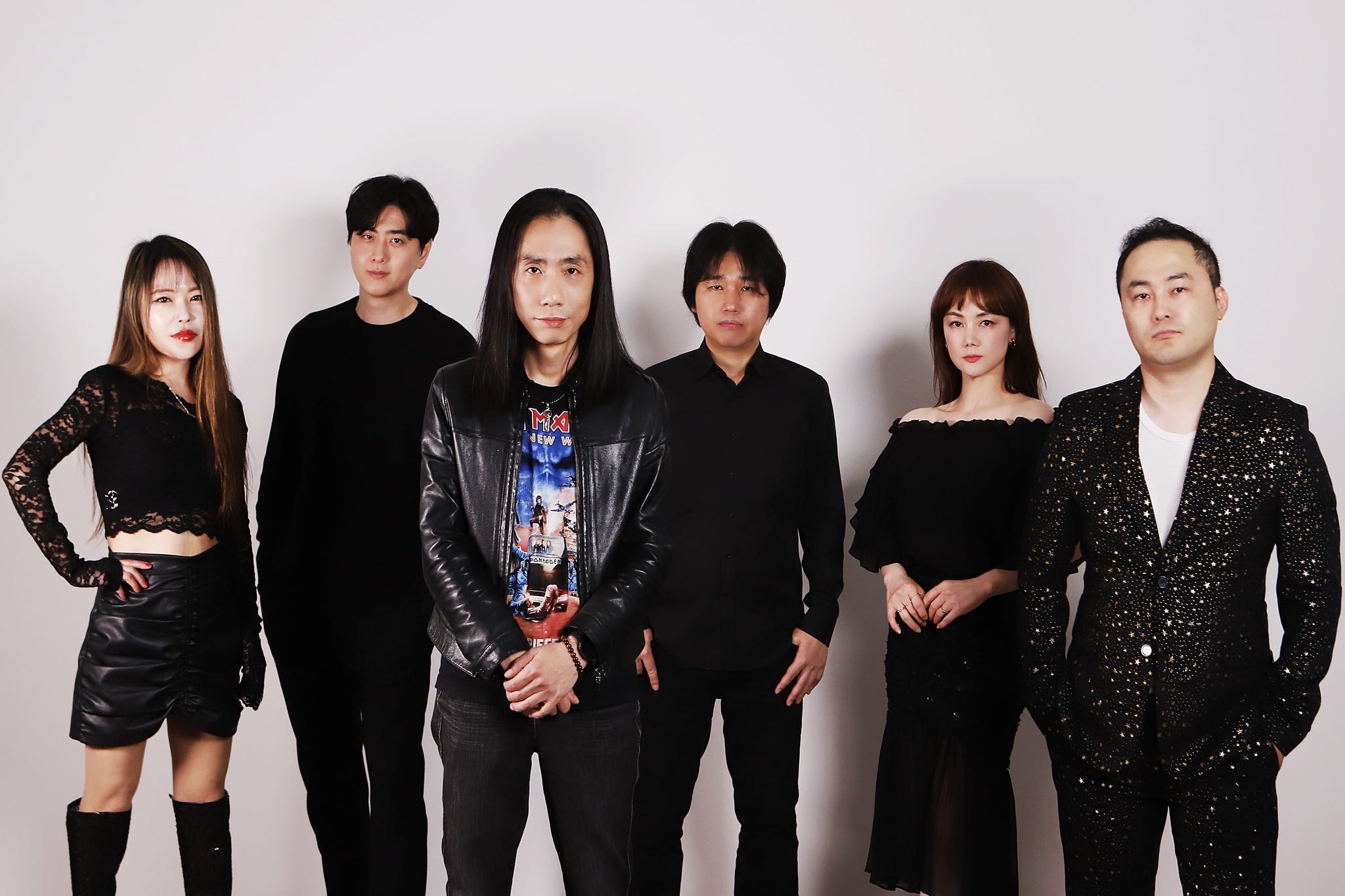
SEBASTIAN KLUTH: “If we take a look on your band logo, we can read that you describe yourselves as “a band for Cho-Sun Rock”. What does that mean to you?”
RYOO KEUN-SANG: “It is not complicated. Korean folk music developed very well during the Cho-sun Dynasty between 1392 and 1910 before our country became known as Korea. Our songs are influenced by Korean folk music and that’s why we have chosen that nick name.”

SEBASTIAN KLUTH: “Among others, you play a couple of quite exotic instruments that some of our readers might not know. What is a daegeum for example or a haegeum? What do these instruments sound like, how did you learn to play them and why did you integrate them to your band sound?”
RYOO KEUN-SANG: “Daegeum and Haegeum are very important Korean instruments for traditional Korean music. They are very old and have a very special sound. In Korea, there are special training courses to learn how to play these instruments at college and university for example. Daegeum is a kind of woodwind instrument made of bamboos and looks like a flute. Heageum is a kind of string instrument. Both instruments have a unique Korean sound. So when we write our songs, we focus on integrating these instruments to create authentic Korean tales and melodies.”

SEBASTIAN KLUTH: “That means that your lyrics are inspired by Korean culture. Can you tell us more about the lyrical concepts behind your three records “10,000 Years Ago”, “Korean Road” and finally “Kkokdugaksi”?”
RYOO KEUN-SANG: “We don’t have any special lyrical concept in each album. We simply write what we want to say. For example, we write lyrics about our own lives, sometimes we tell satire stories about the society or we sing about our resistant spirit that is shared with us by many other rock bands in the world. The only common rule for all our lyrics is that we are always expressing ourselves in Korean.”

SEBASTIAN KLUTH: “How was the reception of your unique concept and music in South Korea and elsewhere when you’ve started your band?”
RYOO KEUN-SANG: “In fact, we were a little bit afraid when we made our first original song because nobody had tried out something like our concept before. Since the release of our first album, many people said that our music is addictive, surprising and unique and it encouraged us to continue. Our first gig was then at a small live club in Seoul in 2005.”
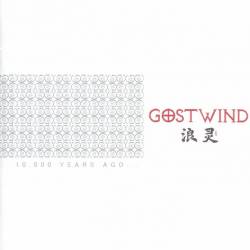
SEBASTIAN KLUTH: “You have released your first two records in not even two years but it took you over six years to release your third album. How comes that you’ve kicked off your career so quickly but took so much time to put out something new?”
RYOO KEUN-SANG: “After the release of our second album, we had a big problem with our agency about money matters. And we had also to replace several band members. But we never had some rest from our performances and composing processes in all these six years.”
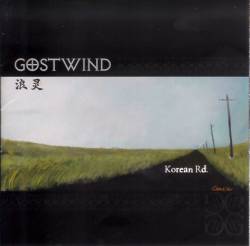
SEBASTIAN KLUTH: “By the way, are you able to live from your musical activities or do you still have other jobs in your everyday lives? How do you manage to deal with both your artistic creations and your private lives or professional careers?”
RYOO KEUN-SANG: “Each of our members still has another job. Eun-hyung, Seung-taek and I play at the same municipal orchestra now. Byung-chan is working for broadcasting music and effects. Jung-hyun also plays in a philharmonic orchestra as double bass player. Ran is involved in traditional Korean music and theater.”
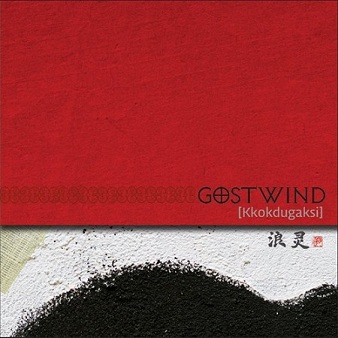
SEBASTIAN KLUTH: “Your music sounds very intellectual and well written and reminds me sometimes of classic music arrangements despite the heavy metal and folk influences. I guess that some of you have studied music and have acquired a lot of experience with these arrangements. Please tell us more about your professional knowledge and how it helps during your song writing.”
RYOO KEUN-SANG: “My father was a musician at a symphonic orchestra. He played the French Horn. So I'm into classical music and have made my very first experiences at a very young age. I have also studied classical music at a university in Germany. For that reason I can maybe arrange classical music naturally. The other composer Byung-chan has also many skills from his broadcasting production experience. And almost all members of Gostwind have acquired a lot of musical knowledge at Korean universities. It’s also crucial that the musical common denominator of all our members is heavy metal. I think all these reasons gave and give birth to our music.”
SEBASTIAN KLUTH: “Are you able to reproduce your detailed and impressive music live or do you change some parts of your songs?”
RYOO KEUN-SANG: “Sometimes we play some improvised songs on stage and the audience gets completely crazy!”
SEBASTIAN KLUTH: “Until now, what have been your best concert experiences? Have you ever opened or shared the stage with a famous act? Have you already played outside of your country?”
RYOO KEUN-SANG: “I participated with other bands in many kinds of rock or world music festivals in Korea. Among them, there also was a popular band called “Rage”. We have received once or twice the liaison casting for a gig outside of Korea but for some reason, the shows were always cancelled at the very last moment and we didn’t really get to know why. We are craving to finally make it to a concert in a foreign country.”

SEBASTIAN KLUTH: “Some people compare your sound with Germany’s “Haggard” or also with Swedish “Therion” for example. According to you, are there any bands outside of South Korea that impress and inspire you or that sound a little bit like you?”
RYOO KEUN-SANG: “Many people compare our music to other bands. Of course, since I was young, I have enjoyed a lot of rock music. But we have our very own experiences that enable us to create our very own music in the end.”
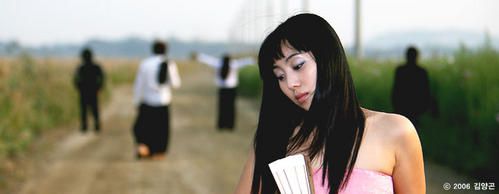
SEBASTIAN KLUTH: “What is the musical evolution between your three records? How would you categorize, describe and judge them today?”
RYOO KEUN-SANG: “Our first album “10,000 Years Ago” was just some sort of a mixture working for both rock and traditional Korean instruments. We were then looking for new paths to create a more Korean style for our second record “Korean Road”. Our third album ‘Kkokdugaksi’ has added even more of Korean culture and rhythm to the sound. The original name of ‘Kkokdugaksi’ is ‘Kkokdugaksi Noleum’. It is a very old Korean folk puppet play. The melody of the original ‘Kkodugksi’ was a major key. But I ended up arranging it as a minor key to fit it to Gostwind’s musical color. And I have used a lot of rhythms from the “Samulnori”, a traditional Korean percussion ensemble, in other songs as well.”
SEBASTIAN KLUTH: “I’ve listened to many of your amazing songs on the internet and I guess that other people might do so as well after reading this interview. Is there any possibility for us international fans to purchase your original records outside of South Korea?”
RYOO KEUN-SANG: “First of all, I would like to say thank you. But sadly, it is still impossible to buy our original albums outside of South Korea. But my agency is working hard to distribute our music outside of Korea right now. Please be patient and wait until it gets officially released in Canada.”
SEBASTIAN KLUTH: “Let’s talk a little bit more about Korean culture. Which historic characters or events are the most important or intriguing ones to you and why?”
RYOO KEUN-SANG: “Korea has a history of 5000 years. It is a peninsula that is geographically located between China and Japan. Korea has been surviving as an independent country even though there have been so many interventions and invasions from those two countries as well as cultural exchanges and influences. Korea still has its own unique culture. Korea is the country which has the greatest number of the cultural heritages registered at the UNESCO. In Korea, there are so many great historical characters and it’s hard to only choose one or two distinctive examples. So let me give you some more details next time. Sorry.”
SEBASTIAN KLUTH: “I’m also very impressed by Korean movies and think that some of them are among the world’s greatest ones. Are there some movies or also books or documentaries that have inspired your lyrics and could you tell us more about them?”
RYOO KEUN-SANG: “I also love Korean movies and some Korean movie directors but I’m actually never inspired by movies or books when I create a song. And I do not like Korean movies that just imitate Hollywood movies.”
SEBASTIAN KLUTH: “South Korea is internationally known for many K-Pop artists like “Seo-Taiji and the Boys”, “Girls’ Generation” or also “PSY”. What do you think of that phenomenon? Does it represent well Korea’s musical culture to foreigners?”
RYOO KEUN-SANG: “I think they are the musicians or dancers for business reasons. They only vaguely imitate foreign pop music in Korean language. They might look and sound Korean, but only for international audiences. Therefore, they cannot be seen as representatives of Korean culture.”
SEBASTIAN KLUTH: “On the other side, we don’t hear a lot about Korean rock and metal bands. What are your favourite Korean bands? Could you also tell us more about important concert venues or festivals in your country?”
RYOO KEUN-SANG: “I have also my favourite Korean bands: “Silent Eye”, “Broken Valentine”, “Down In A Hole” and so on… There are several rock festivals in Korea as well: “Busan International Rock Festival”, “Incheon Pentaport Rock Festival”, “Jisan World Rock Festival” and so on…”
SEBASTIAN KLUTH: “We already approach the end of our interview now. Tell me how you’ve lived the first half of the year 2013 with the release of your new album and what can we expect from you for the last four or five months of this year?”
RYOO KEUN-SANG: “This autumn, there are three more exclusive performances by Gostwind. We will also take part of one music festival. In addition to this, we are already getting prepared for giving multiple small and big club gigs.”
SEBASTIAN KLUTH: “Where would you like to you see your band Gostwind in ten years from now? Do you still have certain dreams you want to realize or ambitious projects you would like to work on over the next years?”
RYOO KEUN-SANG: “Naturally, we need to create more albums. One day, I want to try to play a very big gig with orchestra and a complete choir. And we want to inform as many people as possible about Korean culture and music throughout the entire world through our activities with Gostwind.”
SEBASTIAN KLUTH: “Thanks a lot for taking your time for this interview again. I hope you had a great time and I want to try to spread your name a little bit more to make people from all around the world discover your unique music. As always, the last words belong to the artists. What is the final message you would like to send to our international readers?”
RYOO KEUN-SANG: “I have had a lot of interviews in Korea, but this special interview seemed to me like a master´s degree thesis. I mean, we really had so deep and meaningful discussions. Thank you so much! I think that cultures are much stronger weapons than guns. In that sense, Gostwind desires to become Korea's strongest representative weapon. My last words for the readers are very simple: Rock will never die!”
« Interview with the Korean Symphonic Folk Metal band GostwindZu den Bundestagswahlen der Bundesrepublik Deutschland im September 2013 »








